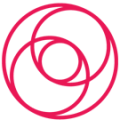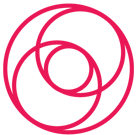Ah, Gen Z.
If you want to know what your next generation of leadership looks like,
thinks like and values then you better get to know them quickly.
The future success of your company is in their hands.
Many companies have up to four generations working side by side with one another:
Boomer, Gen X, Millennials, and Gen Z. Practically speaking, the leadership of those companies resides with older generations such as Boomer or Gen X.
However, what this leadership should be aware of is that the joint population of Millennials and Gen Z is now greater than all the other generations combined.
In 2020, millennials made up 35% of the global workforce with Gen Z making up 24%.
That equates to more than half the entire workforce population. Gen Z in particular
are the ones to watch with more than 2 billion people in the Gen Z age range globally.
Having a unifying business strategy rooted in emotional values such as kindness,
and where the outcome is not simply profit, will resonate with the mindset of this influential generation.
Here are some noted Gen Z characteristics.
The eldest member of Gen Z, the demographic born between 1996 and 2010 is just 25,
and yet the group’s dominance is already being felt.
They are the first ‘digital natives.’
To put it another way, they don’t remember a time before the internet.
Millennials were considered “digital pioneers,” growing up alongside the rapid growth and expansion of technology and social media.
Gen Z was born into a world where information was immediately accessible and social media increasingly ubiquitous.
They are shrewd consumers.
In the same way that Gen Z use social media to curate their own personal brand, they also look at their purchasing decisions as an expression
of their values and identity.
As an example, they are drawn to sustainable products and brands, and are often willing
to pay more for them. They are drawn to brands who share their point of view on political issues. If you don’t stand for something, then you stand for nothing in their eyes.
They have a strong sense of civic engagement.
As a more diverse group than previous generations, in terms of both ethnic mix and gender identity, they are both comfortable and vocal in taking a stand for change and equality.
Using platforms like Snapchat, Instagram, Twitter and TikTok, they have helped move activism into the digital age.
Pre-pandemic, Amnesty International asked 10,000 18-to-25 year olds in 22 countries to identify the world’s most pressing issues.
Global warming was the #1 issue with over 41% of total respondents. Similarly in the US alone, an overwhelming majority of 87% of Gen Z’s report being worried for the environment and the planet. *
Not surprisingly, 93% of Gen Zs surveyed say that brands have an obligation to take a stand on environmental issues **
In summary:
They are diverse, well-educated and digital natives.
They have high ethical standards and value a diverse workforce.
They want to do meaningful work, solve problems and make a difference.
So take a look at your current middle management.
Then look a little deeper at the organization and a click down at the people they manage.
It’s likely that they will be a combination of Millennials and Gen Z.
In a recent Microsoft report, 60% of Gen Z’s say they are merely surviving or flat-out struggling.
Gen Z also reported more difficulty feeling engaged or excited about work, getting a word in during meetings, and bringing new ideas to the table when compared to other generations.
The future leadership of your company does not feel like it is being seen, heard,
or valued at work.
Read those last two paragraphs again…
To compound the situation, there is a huge disparity in perception of how well things
are going between business leaders and the rest of the organization.
In the same report, 61% leaders say they are “thriving” right now, which is 23% points higher than those without decision-making authority.
That’s a major discrepancy between those who are ‘saying’ (the leaders)
and those who are actually ‘doing’ (the employees).
This is one example of “The Kindness Gap” ™ in companies today.
How does your company look like?
The situation of leadership and employees not being on the same page might not be new, but the stakes are significantly higher today. The demographic of people at work is different, and their values and attitude to work are different.
The pandemic changed the face of work and the role of the office forever,
requiring a new mindset and approach.
It also changed people’s relationship with work as a ‘thing’ in and of itself.
It sparked a global mass exodus from work with ‘The Great Resignation” with over 4M resigning in April 2021 in the US alone.
So, what can you do?
Find ways to engage with the younger generations in your organization.
Give them meaningful opportunities and outlets to express themselves.
Importantly acknowledge their input and provide feedback, even if you don’t know all the answers.
Start the dialogue and take small steps to bridge The Kindness Gap.™
Credit:
*Source: Porter Novelli/Cone.
**Source: UNiDAYS
Photo by Adam Winger on Unsplash




